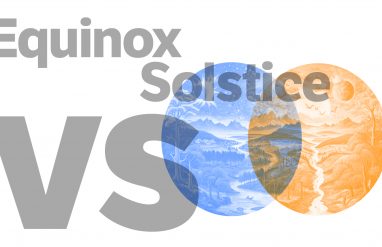Here’s an uncontroversial statement: books have the power to teach us about people, places, cultures, and ideas—especially ones that are different or unfamiliar to us. For young people in particular, a book can be a window to the world beyond their everyday surroundings.
But recently, a growing number of political leaders, school officials, and parents in several US states have worked to remove or ban certain books from classrooms and school libraries. The books most commonly targeted are those that discuss complex topics related to racial identity, racism, gender, and sexuality. Bans and attempted bans have targeted both works of fiction, such as Art Spiegelman’s Pulitzer Prize-winning graphic novel Maus, which involves the Holocaust, and nonfiction books, including memoirs and historical texts, such as Roxanne Dunbar-Ortiz’s An Indigenous People’s History Of The United States.
Book bans aren’t new. Throughout history, there have been many instances of censorship, bans, and even burning of books that political or religious figures deemed contrary to their ideologies in some way.
A notable wave of book banning attempts occurred in the US in the 1980s. In 1982, some opponents of the bans launched Banned Books Week, which is typically observed at the end of September as a way to spotlight and fight back against these restrictions and celebrate the freedom to read.
We’re taking the occasion to look at a dozen different books recently pulled from the shelves in some US schools. We’ll let the books speak for themselves with these 12 excerpts that capture some of their key passages and themes.
1. Nasreen’s Secret School: A True Story From Afghanistan
by Jeanette Winter
“Windows opened for Nasreen in that little school room. She learned about the artists and writers and scholars and mystics who long ago made Herat beautiful. Nasreen no longer feels alone. The knowledge she holds inside will always be with her like a good friend … The soldiers can never close the windows that have opened for my granddaughter.”
2. Lobizona
by Romina Garber
“When someone deviates from an accepted norm, they signal a gap in the system. A hole that hasn’t been plugged. The danger with exposing a foundation’s failings is it opens the door to the possibility that it’s a faulty structure altogether and should be torn down and built anew.”
3. This Book Is Anti-Racist: 20 Lessons on How to Wake Up, Take Action, and Do the Work
by Tiffany Jewell
“When you don’t see Black and Brown folx on TV and in movies, when their stories are not in our history books, you begin to draw your own conclusions about why you regularly see white actors, authors, and models. This becomes your normal and it’s easy to go along with this ordinary way of life.”
4. Cemetery Boys
by Aiden Thomas
“I implore you to be more open minded, hermano. If we close ourselves off to the possibilities that lie outside of what tradition has dictated, we are destined for extinction.”
5. Maus
by Art Spiegelman
“And we came here to the concentration camp Auschwitz. And we knew that from here we will not come out anymore… We knew the stories—that they will gas us and throw us in the ovens. This was 1944… We knew everything. And here we were.”
6. Boy Erased
by Garrard Conley
“I wondered what it felt like to see yourself reflected in every movie, to have friends and family constantly dropping fun little hints about your love life, to have a world open up to you in all its magnificence. What did it feel like to not have to think about your every move, to not be scrutinized for everything you did, to not have to lie everyday?”
7. Gabi, A Girl In Pieces
by Isabel Quintero
“I wanted the zine to make people think about how girls are raised to think about our bodies and who gets to decide how we think about them.”
8. Stamped: Racism, Antiracism, and You
by Ibrahim X. Kendi and Jason Reynolds
“… [T]here will come a time when we will love humanity, when we will gain the courage to fight for an equitable society for our beloved humanity, knowing, intelligently, that when we fight for humanity, we are fighting for ourselves. There will come a time. Maybe, just maybe, that time is now.”
9. Pride: The Story Of Harvey Milk And The Rainbow Flag
by Rob Sanders
“The wind blew. The flag fluttered, flapped, and flew. A rainbow, as bright and unique as the men and women who walked behind it, led the march. Harvey and the people asked for equality. They asked to be treated like anyone else. They asked to live and be loved as they please.”
10. Persepolis: The Story Of A Childhood
by Marjane Satrapi
“Once again, I arrived at my usual conclusion: one must educate oneself.”
11. An Indigenous People’s History of the United States
by Roxanne Dunbar-Ortiz
“Under the crust of that portion of Earth called the United States of America—‘from California … to the Gulf Stream waters’—are interred the bones, villages, fields, and sacred objects of American Indians. They cry out for their stories to be heard through their descendants who carry the memories of how the country was founded and how it came to be as it is today.”
12. The Hate U Give
by Angie Thomas
“That’s the problem. We let people say stuff, and they say it so much that it becomes okay to them and normal to us. What’s the point of having a voice if you’re gonna’ be silent in all those moments you shouldn’t be?”














